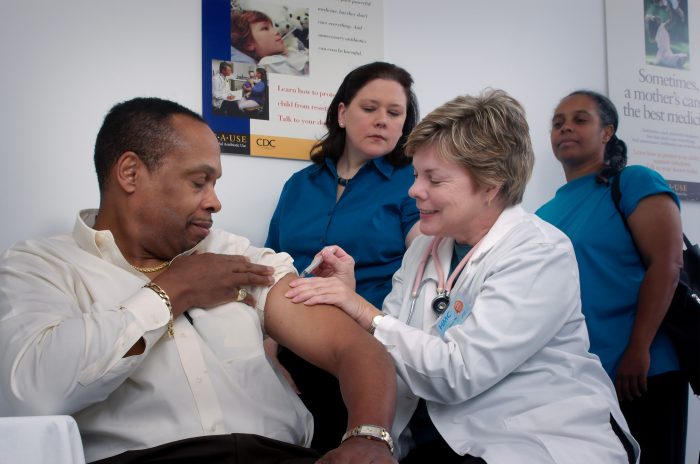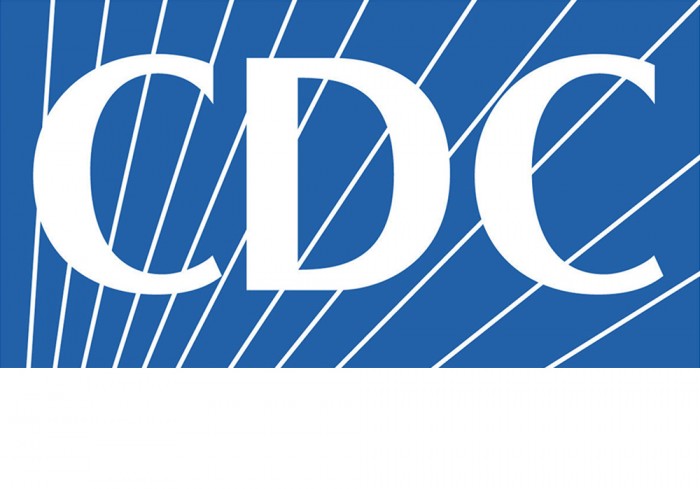cdc
Not Just ADHD? Helping Children With Multiple Concerns
Many children who have attention-deficit/hyperactivity disorder (ADHD) have other concerns or disorders. For some children, symptoms that look like ADHD can be better explained by another diagnosis. Recognizing symptoms of ADHD and other disorders and finding ways to help children can be a challenge for families. Read more about how to help children who have ADHD and other disorders.
The Centers for Disease Control and Prevention (CDC) funds the National Resource Center on ADHD (NRC), a program of CHADD — Children and Adults with Attention-Deficit/Hyperactivity Disorder. Visit the NRC for more information and resources for children with ADHD and their families. The NRC also operates a call center (866-200-8098) with trained staff to answer questions about ADHD and related disorders.
CDC Designs New Online Concussion Training for School Professionals
The Centers for Disease Control and Prevention (CDC) has designed a new online concussion training for school professionals. This new free training, HEADS UP to Schools: Online Concussion Training for School Professionals, which takes 45-60 minutes to complete, is designed to help classroom teachers (grades K-12), school administrators, paraprofessionals, teacher’s aides, and other staff who work with students to understand the following:
- How a concussion may affect a student’s learning, emotions, and behavior;
- How to identify and monitor signs and symptoms of concussion; and
- How to help students successfully return to school and recover from a concussion.
Preview the CDC HEADS UP Trainings on Concussion:
- Training for coaches
- Training for healthcare providers
- Videos on concussion safety
- Graphics and infographics
CDC Updated Information Regarding Vaccines and the Delta Variant
We’re learning more about COVID-19 all the time. The Centers for Disease Control and Prevention (CDC) looks at the latest available evidence to make the best science-based public health recommendations. Because of new information on the Delta variant currently circulating in the United States, CDC has updated the information for fully vaccinated people.
More About the Delta Variant
Viruses constantly change through mutation. Slightly different forms of a virus are called variants.
Delta is one such variant, and it’s caused more than 80% of recent COVID-19 cases in the United States – according to estimates – and will likely cause more. Delta spreads more easily than other variants. In fact, COVID-19 cases have increased over 300% nationally from June 19 to July 23, 2021, driven by Delta variant.
The best way to stop the spread of Delta is to get vaccinated against COVID-19. Vaccines are preventing severe illness, hospitalization, and death, and are effective against the Delta variant. High vaccination coverage will reduce spread of the virus in your community and elsewhere – and help prevent new variants from emerging.
What Has Been Updated?
CDC is constantly reviewing new data and evidence on the Delta variant. This update is based on recent evidence both here in the United States and in other countries. It shows a small number of fully vaccinated people may be infected with Delta and may infect others.
The highest spread of cases and severe outcomes is happening in places with low vaccination rates. Most vaccinated people are protected from the virus. However, the evidence shows that vaccinated people can get Delta in a breakthrough infection and may be contagious. Even so, breakthrough cases are being seen in a small number of vaccinated people and the vast majority are avoiding serious illness, hospitalization, or death. Virtually all hospitalizations and deaths continue to be in those who are not vaccinated.
The Delta variant is much more contagious than previous versions of the virus. Therefore, CDC now recommends the following for people who are fully vaccinated (more than 2 weeks from the last dose of the vaccine):
- To reduce the risk of being infected with the Delta variant and possibly spreading it to others, wear a mask indoors in public if you are in an area of substantial or high transmission.
- Fully vaccinated people might choose to wear a mask regardless of the level of transmission, especially if you have a weakened immune system or if, because of your age or an underlying medical condition, you are at increased risk for severe disease, or if a member of your household has a weakened immune system, is at increased risk for severe disease, or is not vaccinated.
- If you’ve been around someone who has COVID-19, you should get tested 3-5 days after your exposure, even if you don’t have symptoms. You should also wear a mask indoors in public for 14 days following exposure or until your test result is negative. You should isolate for 10 days if your test result is positive.
CDC recommends universal indoor masking for all teachers, staff, students, and visitors to K-12 schools, regardless of vaccination status. Children should return to full-time in-person learning in the fall with layered prevention strategies in place.
Learn more about these updates. At this time, recommendations for travel have not changed.
How to Protect Yourself and Your Community
Getting vaccinated is the most important thing you can do to end the COVID-19 pandemic. But some people may still need to take steps to protect themselves against COVID-19, such as children too young to get vaccinated or people with weakened immune systems.
In addition to wearing masks indoors in public, consider the following:
- Choose safer activities, like those outdoors
- Stay 6 feet apart from people not in your household
- Avoid crowds and poorly ventilated spaces
- Wash your hands often
- Cover coughs and sneezes
- Clean and disinfect surfaces
- Monitor your health daily
Find a Vaccine Near You. With the Delta variant, getting vaccinated is more urgent than ever. Please send this information to your colleagues, networks, friends, and family.
Additional Resources
- CDC COVID Data Tracker
- CDC COVID-19 Vaccine Equity for Racial and Ethnic Minority Groups
- COVID-19 Vaccine Equity: Best Practices for Community and Faith-Based Organizations
- Mi Chat on WhatsApp, connecting to COVID-19 resources, including more about vaccines (in Spanish only)
- Science Brief: COVID-19 Vaccines and Vaccination
- COVID-19 Vaccine Information for Specific Groups
Contact Us
Email: EPIC@cdc.gov
Centers for Disease Control and Prevention
1600 Clifton Rd
Atlanta, GA 30333
Questions?
Contact CDC-INFO
800-CDC-INFO (800-232-4636) TTY: 888-232-6348
CDC Study Pinpoints Prevalence Of Intellectual Disability
NHSN Data Submission Deadline Extended for IRF QRP
The Centers for Medicare and Medicaid Services (CMS) recently announced that due to system issues, the February submission deadline for the inpatient rehabilitation facility (IRF) quality reporting program (QRP) data submitted via the Centers for Disease Control and Prevention (CDC) National Health and Safety Network (NHSN) has been extended to May 15, 2017.
The deadline has been extended for the following IRF quality reporting programs, measures, and reporting programs:
May 15, 2017 IRF QRP for Quarter 3 2016
- CDC NHSN Healthcare-Associated Infection (HAI) Measures for quarter 3 2016
- Catheter-associated Urinary Tract Infection (CAUTI)
- Methicillin-resistant Staphylococcus aureus (MRSA)
- Clostridium difficile Infection (CDI)
CMS is granting this extension to provide facilities additional time to submit quality reporting data and run applicable reports to ensure accurate submission. For further assistance regarding the IRF & long-term care hospitals (LTCH) quality reporting programs and policy information, visit the IRF Quality Reporting Data Submission Deadlines web page.














